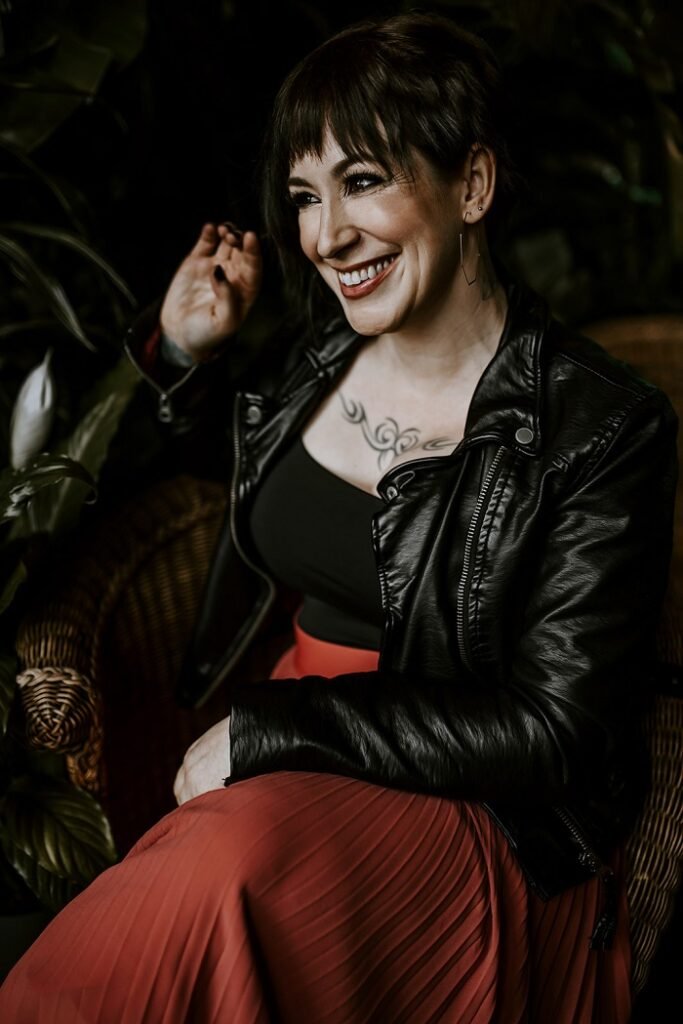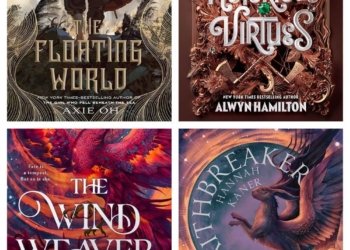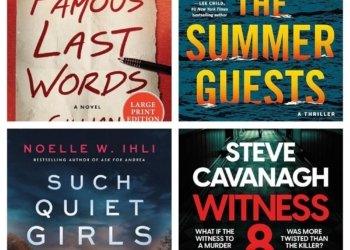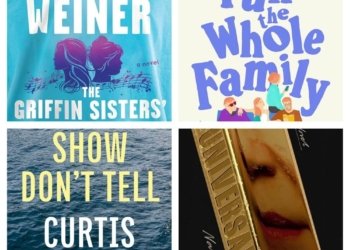No products in the cart.
A Conversation with Kristy Gardner, a Sci-Fi Author
Kristy Gardner is the author of the Broken Stars sci-fi series, and the award-winning cookbook, COOKING WITH COCKTAILS.
69
SHARES948
VIEWSKristy Gardner is a bi sci-fi, fantasy, and horror writer. She is the author of the Broken Stars sci-fi series, and the award-winning cookbook, COOKING WITH COCKTAILS. Furnished with degrees in Gender Studies and Sociology, she crafts queer characters that adventure through space, time, and emotional maelstroms questioning what identity – and home – really mean.
When she’s not jet-setting words on her laptop, she’s chasing stars, mountain adventures, belly laughs, curating playlists for her books, and packing her carry-on for another escape to SE Asia. She resides in Vancouver B.C. with her partner.
Let’s get started with a quick rapid fire.

Q1. If you could be transformed into one animal, which one would you choose?
Capybara. They have the serenity I can’t seem to harness for myself.
Q2. What time do you usually go to bed at night?
Usually between 8-8:30pm.
Q3. Are you more of an introvert or an extrovert?
I’m an introvert with extrovert energy.
Q4. Would you rather travel to the past or to the future?
The future of the planet terrifies me and I’m not entirely convinced there will be anything to travel to in the near the future (too cynical?) so… I’m going to say the past, if I had to choose.
Q5. What is your last Google search?
How to travel through time (yes, it was inspired by your previous question).
Q6. What object do you misplace or lose the most?
Besides my mind? My pre-loaded transit card.
Q7. What is the kindest thing someone ever did for you?
My parents raised me and gave up a lot of their own wants and dreams to do so. I’ll forever be grateful for their sacrifices.
Q8. Learn by watching or learn by doing?
Doing. You can show and tell something to me a hundred times but unless I fold it into muscle memory, I’ll forget in ten minutes.
Q9. Expensive presents or homemade presents?
Not actually much of a presents kind of person, I’m kind of a minimalist. That said if we *must* exchange gifts, homemade has more value for me.
Q10. What is one missed opportunity that you wish you could have a second chance at?
I don’t believe in regrets, but I wish I’d stood up for myself and shared my truth in uncomfortable situations or when my needs weren’t being met.
Q11. What is not a big deal to most people but is torture to you?
Random beeping at home–the dryer, microwave, oven timers. They make me want to pull my hair out.
It’s time for a more detailed conversation, Kristy.
You’ve answered our rapid fire so well, Kristy. Now, it’s time for our readers to know more about the person behind the book.
Q. Tell us something about yourself that’s going to make us wonder more about you.
Five years ago I sold everything I owned–car, furniture, clothing–and bought a one-way plane ticket to Thailand. I left Canada with only a 32L backpack and the sense that I was about to embark on something magical. And hard AF. Turns out, that was the beginning of my long journey back to myself after a decade of self-neglect and emotional trauma, and the start of my path to becoming a novelist. While it took seven years from inception to publication, the vast majority of the actual writing of THE STARS IN THEIR EYES took place over the course of 6 months, mostly parked on a friend’s patio in the north of Thailand. Three years later, I wrote the second book in that series, THE DARKEST STARS, which releases September 19, 2023. The third and final book, STARS 3 – TITLE TBD, was written only 4 months after that.
Q. Well, that will keep you in our thoughts. So, what books did you grow up reading?
Pretty much anything I could get my hands on. The Scholastic book fairs (do schools still have these?) were my favourite days of the year. I’d circle dozens of books in the calendar but my parents had to restrict me to 2-3 because they couldn’t afford more. I usually ended up with what we’d today call YA horror–R.L Stine’s Fear Street series, Christopher Pike. I balanced the “murdery” out with Garfield comics, too.
Q. Interesting. What, to you, are the most important elements of good writing?
Clarity–both in terms of character development and plot. Every reader has different tastes and every writer has their own process, but if you aren’t clear on who your characters are, the shape of their arcs, or the direction of the story, writing can feel flat or have massive, gaping holes. Good writing has clarity.
Q. Now comes the most anticipated question that every author must answer. How do you process and deal with negative book reviews?
I don’t. Typically they aren’t for me; they’re for readers. That said, I love engaging with readers and have developed really wonderful relationships with a lot of mine, but I try to be respectful of reader spaces and let them do their thing. This includes letting go of the need to control the narrative around my book. My job is to write the damn thing in the truest way I can and then release it out into the world. Still, occasionally I’ll get tagged in a negative review (please don’t do this; we’re people and it hurts) or bump into one on the internet. It isn’t super fun, so I try to avoid them.
Q. What comes first for you — the plot or the characters — and why?
I almost always get the spark of a character or concept before I know the story. Sometimes it’s a name, other times it’s a vague idea about the world. It just comes to me, like magic. For example, with THE STARS IN THEIR EYES, I knew I wanted to write a sapphic alien invasion story centered around a bisexual woman who was struggling to find her footing in a post-apocalyptic world. The actual events came later.
Q. How do you develop your plot and characters?
Like I said, the initial concept and main character kind of comes to me on their own. From there, I start by identifying the number one thing the main character wants and then think up every possible thing that could go wrong to prevent them from getting it.
I’m a big planner because I cannot embark on a writing journey without knowing where I’m going. It also saves me a shit ton of editing later on. So I workshop the 3 act story structure on a whiteboard using color-coded markers to break down the focus/major events of each chapter, including major plot points, sub-plot evolution, the mid-point and climax, and even main character introductions. Once that’s complete, I use matching cue-cards to flush out all the major beats of each chapter and detailed character profiles. This all gets dumped into my writing software. When it’s time to write, I’m basically converting my notes into prose.
Q. What does literary success look like to you?
Success–and publishing–is fickle, and if I let external benchmarks of success define mine, I’ll never be happy because the goal post is constantly changing, you know? I’m effectively playing a game that’s not only rigged, but that I have no control over.
I hope this doesn’t come across as naïve or too idealistic, but to me literary success looks like a story that’s as true and authentic to my vision and experience as possible. I don’t want to write for “commerciality” or because something is on trend. I want to write a story that I feel passionate about and that I feel needs to be told.
Do I want a seven-figure advance, to have my book on the BookTok tables at Barnes & Noble and all the indie shops around the country, and be optioned and made into a major motion picture or Netflix series? Of course I do. Yes, absolutely. But to me, those are all dreams come true, more than they are success.
For me, literally success comes from within.

Q. Let’s talk about your book. Tell us about it. No major spoilers.
THE DARKEST STARS (Sept 2023) is the second book in my queer Broken Stars series, and basically picks up where THE STARS IN THEIR EYES (Oct 2022) left off.
After losing everything she’s ever loved in the alien apocalypse, Calay is unraveling. When a mysterious woman who claims to be sent from the stars promises to deliver everything Calay has ever wanted in her shattered heart, she travels to a distant galaxy with the hope she might save a dying Earth. The reality, however, is far more horrifying than she could have ever imagined. As the universe descends into darkness, she finds herself trapped in the far reaches of deep space, face to face with dangerous forces, shocking truths, and feral monsters that will force her to confront the darkest parts of herself, pushing her to the very limits of what it means to be human.
You can think about it like the character-driven journey of THE LAST OF US, intertwined with the unsettling cosmic anomalies of ANNIHILATION, and the heart-pounding action of ALIEN.
Q. What part of the book did you have the hardest time writing?
This was a different experience than THE STARS IN THEIR EYES. I had a difficult time writing that book because it was the first novel I’d ever written. Between that one and this one though, I’ve written two other books. So this time it wasn’t so much “how the fuck do I write a novel?” and more “how do I give Calay the adventure she deserves?”
So much of what she goes through (unintentionally) parallels my own healing journey and putting my heart on the page in such a raw and visceral way–but with aliens–was difficult. Not just because it’s going to be published and sent into the universe and reader’s TBRs, but because I had to be honest with myself about who I was, who I am, and who I really want to be. Like… Yikes.
Q. Would you and your main character get along?
I’m not so sure. Calay isn’t the most likeable of people. She makes impulsive decisions based on unresolved traumas, has serious trust issues, and some fairly unhealthy coping mechanisms–it’s understandable, she’s been through the collapse of society and experienced the worst parts of humanity. I like to think her relentless hope redeems her a little bit though. We’ve both been to the dark place, and survived. So far, anyhow. So…maybe? I’m not sure I did a very good job of answering that one.
Q. What are the essential characteristics of a hero you can root for?
I have a really hard time rooting for heroes who are squeaky clean. I love flawed characters, as long as we can find something to relate to. For example, I think as humans we have an innate need to be loved and accepted–a character who fights for these things is someone I can connect with and get behind, even if they sometimes make questionable decisions or navigate challenges with a grey moral-compass. Give me a hero with some rough patches so I have something to hang onto.
Q. Let’s talk about the process of writing. When you’re writing an emotional or difficult scene, how do you set the mood?
I almost always have a scented candle for the book I’m writing, mood music–there are lots of great playlists on YouTube or Spotify, and something warm to sip on. I take a few extra breaths and try to pull up a memory from my own life that made me feel what the character is intended to feel. I sink into it. Then, I type.
Q. What was your hardest scene to write?
It would be a spoiler to share the specific scene, but let’s just say it breaks Calay and nearly broke me–I suddenly burst into tears myself writing it. There’s actually been a scene like that in each of the 3 books in the Broken Stars series. Readers have sent me emails and DMs when they’ve gotten to them. I’m grateful the emotion between the pages has connected us.
Q. It’s been fun. Now, before we wrap this up, do you have any suggestions to help me become a better writer? If so, what are they?
Read. Read a lot. Then read some more. Aside from making writing a part of your routine and actually putting your butt in the chair and typing, studying books in your genre (and even other genres!) is the best thing a writer can do to develop their craft.
Related Posts
A Conversation with Melanie Shawn, a Romance Author
NYT & USA TODAY bestselling author Melanie Shawn lives in Southern California and is a mama to two adult people...
10 Most Anticipated Fantasy Books of Spring 2025
As the seasons change and we step into the vibrant energy of spring 2025, readers everywhere are eagerly anticipating fresh...
10 Most Anticipated Thriller Books of Spring 2025
Are you a bookworm who thrives on heart-pounding suspense and unexpected twists? Get ready to mark your calendars and clear...
8 Most Anticipated Contemporary Books of Spring 2025
Are you a bookworm always on the lookout for the next big literary gem to dive into? Well, get ready...
About Us

Trenzle
Where Trends are made and discovered
Trenzle is your official source of discovering the latest people, work, and ideas that deserve to trend. Discover Authors and their books, Creators and their work, People and their opinions, and Stories from around the globe.
Learn more
Latest Posts
Trenzle Top 10 Trending Free Book Deals for April 23, 2025
April 23, 2025
A Conversation with Melanie Shawn, a Romance Author
April 19, 2025
Categories
© 2023 Trenzle - Online Author News & Magazine









